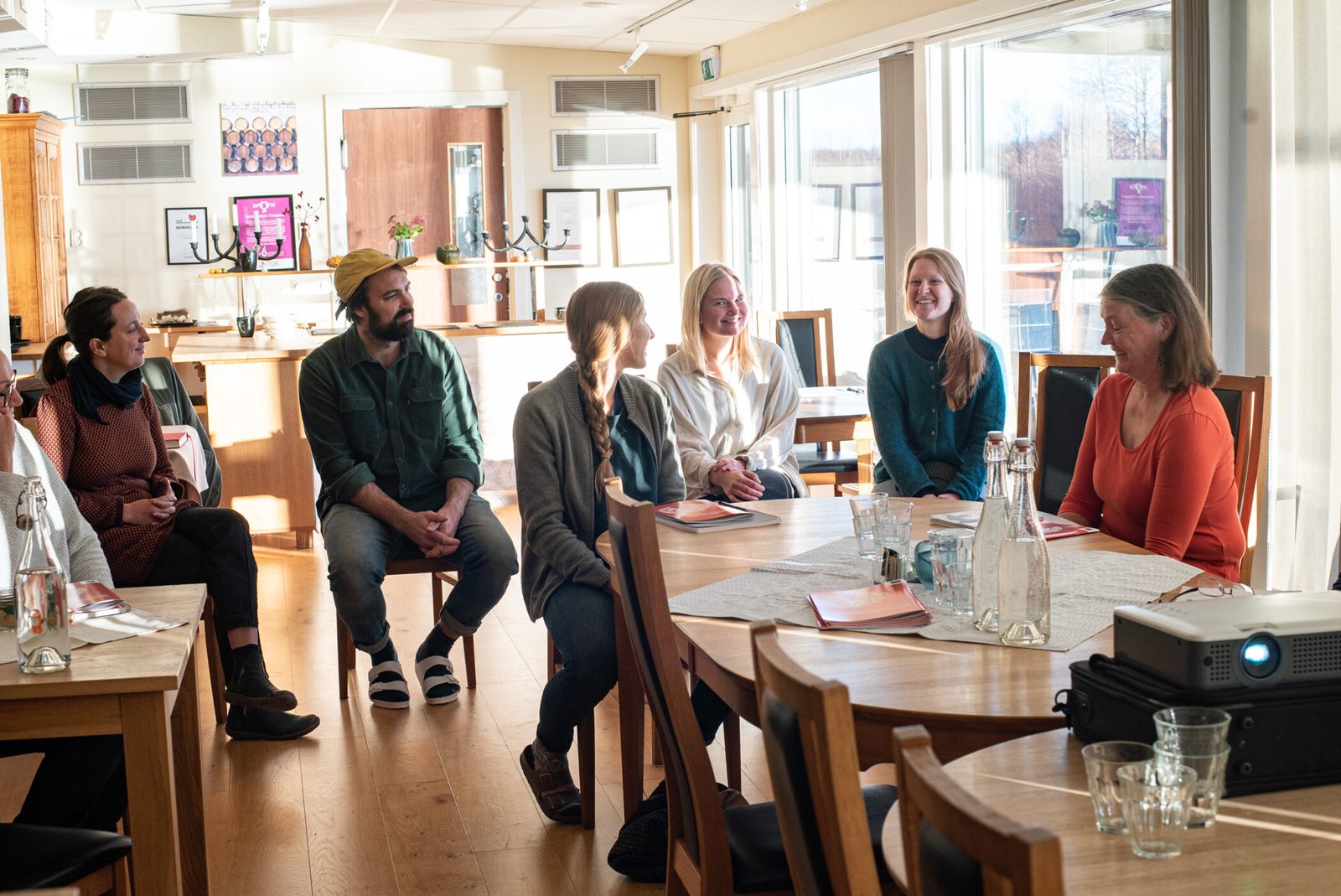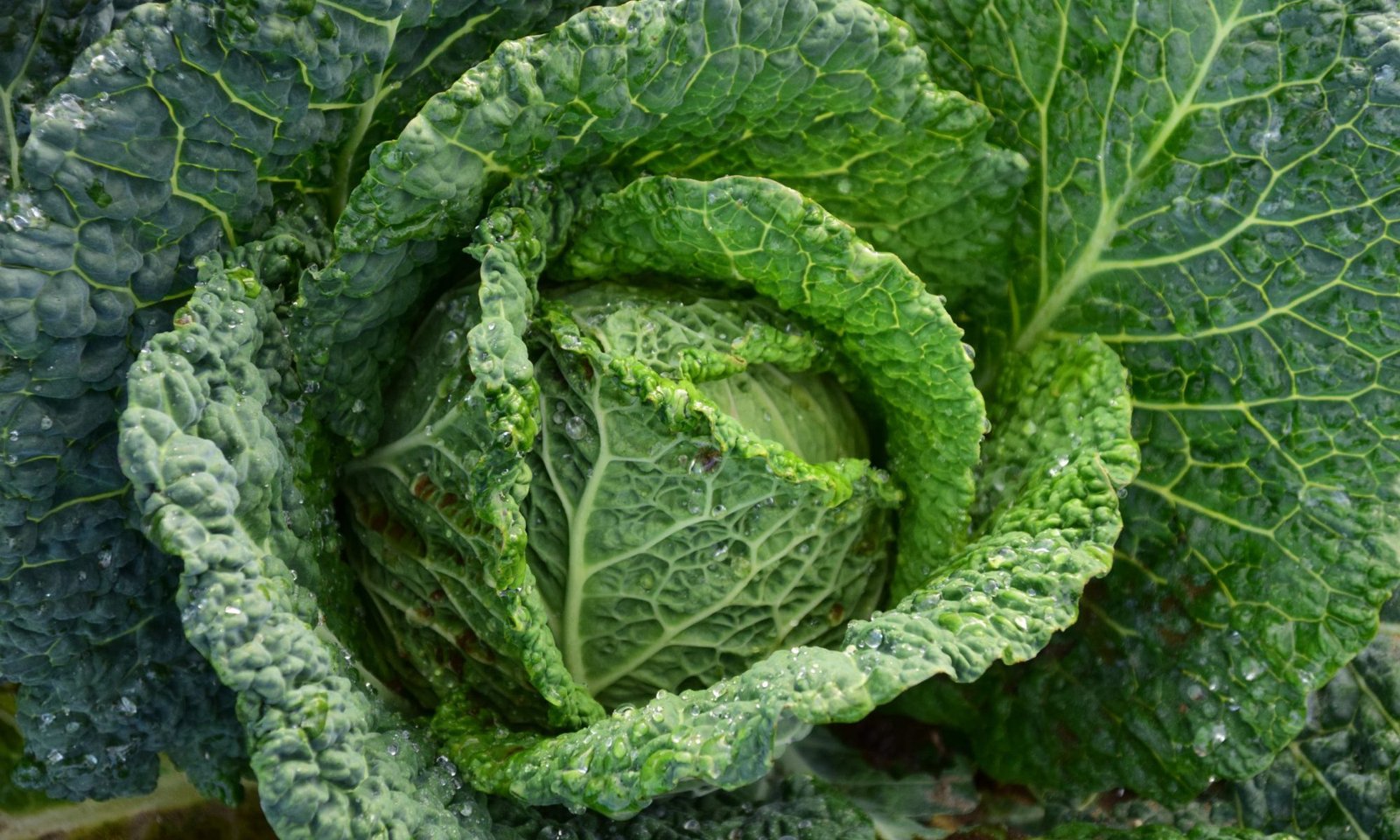Project name Förädlingsodling: fermenation for small-scale vegetable growers
Project leader Brigid Lefevre
Project period December 2020 – December 2022
Introduction
Fermented food has received significant attention in the media and restaurant industry in recent times, particularly in relation to increased interest in Nordic cuisine, seasonal and locally sourced food, and artisanal food production. The fermentation of vegetables is an ancient and globally practiced method of processing that can easily be combined with vegetable cultivation. It is a value-added product that requires no heating and carries fewer risks compared to other processing methods. While lactic acid fermentation fell out of favour in many parts of the Western world during the 20th century, it has played a strong and continuous role in many other global regions for thousands of years. There is a good chance that lacto-fermented vegetables will once again become everyday food in Sweden. Lacto-fermentation is a method of food preservation that can contribute to increased food security at a national level. The increased media interest in the past 20 years has led to extensive research on the health benefits of fermented foods. We now have a better understanding of the crucial role microorganisms play in our well-being. Lacto-fermentation of vegetables is a reliable and easily manageable culinary craft that can contribute to better health, reduced waste from agricultural, and help small-scale vegetable growers improve their economic viability.
Definitions
Fermented foods are “foods made through desired microbial growth and enzymatic conversions of food components.” International Scientific Association for Probiotics and Prebiotics (ISAPP)
Lactic acid fermentation: Fermentation of vegetables through the activity of lactic acid bacteria.
Small-scale vegetable growers: Includes professional growers and dedicated hobbyists.
Description
During 2021 and 2022, the “FÖRÄDLAD andelsförädlingsodling” (Cooperative Cultivation and Processing) initiated a project supported by the Swedish Board of Agriculture to encourage increased lacto-fermentation among small-scale vegetable growers. Lacto-fermentation can be a way for small-scale farming operations to diversify, create economic stability, and promote healthy eating habits among consumers. The purpose of the project was to assist growers in taking the first steps towards fermentating more of their crops. Information sessions, demonstrations and workshops were conducted to illustrate the process of lacto-fermented food production and consumption, helping a transitioning from a media trend to actual production. Through demonstrations, providing recipe options, and offering tips on integrating fermented food into meals, consumers could also be educated and thus increase the demand in areas where the producers are located.



Background
The project leader, Brigid Lefevre, has been involved in vegetable cultivation and fermentation activities for over 10 years. After running the “FÖRÄDLAD andelsförädlingsodling” (Cooperative for Cultivation and Processing) – a pilot garden where all the produce was lacto-fermented before distribution to members – she was inspired to share her experiences. It became clear that fermentation was a great way to find stability as a grower, which led to the creation of the project “Förädlingsodling: mjölksyrning för småskaliga grönsaksodlare” (Cultivation for Processing: Lacto-Fermentation for Small-Scale Vegetable Growers).

Aims & objectives
The purpose of this project is to assist small-scale vegetable growers in integrating fermentation into their operations through products, courses, or as cooperative processing ventures. The aim is to ensure that they have the necessary tools to generate consumer demand. This will lead to the development of new products, improved customer engagement, and the emergence of new services and business models.
The project will enable small-scale primary producers to benefit from emerging food trends where consumers have shown increased interest in lacto-fermentation and demand for related products is growing. Participating businesses will receive tools in the form of knowledge on how to produce lacto-fermented vegetables, effectively communicate and market their products, conduct courses, and utilize the community-supported agriculture (CSA) model, leading to increased resilience as growers. The target audience for the information sessions primarily includes small-scale primary producers with holdings under four hectares, who are often in need of improved profitability and business development. Integrating lacto-fermentation into their operations through new products, courses, and/or cooperative processing will offer significant benefits. Value-added processing of garden produce extends the season for growers and allows them to maximise returns on their labor.


The implementation and scope of the project
The course days took place in different regions of Sweden to facilitate participation for the growers. The full-day courses included personal and group coaching to improve the chances of the course leading to action.
Project leader Brigid Lefevre and Emilia Rekestad conducted five full-day courses across the country where participants, small-scale vegetable growers, learned about basic fermentation, techniques, tools, tasted a variety of lacto-fermented products, and received coaching on how to incorporate vegetable fermentation into their own businesses.
Courses were held in Stjärnsund i Hedemora, Hela Jorden in Stockholm, Hornuddens Trädgård in Strängnäs, Wij Trädgårdar in Ockelbo and Bossgårdens Grönsaker in Tidaholm.
Three additional short courses were held, with 15 participants registered for each course. The half-day courses took place at Solgläntans Hållbar Hälsa in Stenungsund municipality, Skilleby Trädgård, Södertälje municipality, and Stjärnsund in Hedemora, with a focus on using perennial vegetables in lacto-fermentation. The course in Stjärnsund was held in collaboration with Annevi Sjöberg, one of the authors of the books “Fleråriga Grönsaker” (Perennial Vegetables) and “Skogsträdgården” (Forest Gardening). The project was presented to 130 allotment gardeners and students in horticulture education programs.
A compendium was created for the course days, containing recipes, resources, and tips to get started with lacto-fermentation on a larger scale. A website, www.foradlingsodling.se, and a newsletter were established, providing additional recipes from FÖRÄDLAD andelsförädlingsodling and information about the project.
Lastly, after at least one growing season had passed since the full-day courses, the project leader visited some of the participating growers across the country in 2021 and 2022 to see how they had developed lacto-fermentation on their farms or at home.

Results and Dissemination
Five full-day courses have been held with 50 registered participants.
One half-day course and two demonstrations have been held for 45 registered participants.
The project has been presented to more than 130 people in connection with other courses.
The newsletter with recipes and information about the project has over 100 subscribers.
Information about the project has been shared on the project leader’s social media accounts – Instagram, which is followed by 1500 people, and Facebook, which is followed by 1000 people.
An article was published in Biodynamisk Odling, a membership magazine that reaches 700 members.
Together with filmmaker Mattias Olsson from Campfire Stories, a short film was created featuring three simple recipes for lacto-fermented vegetables. So far, the film has been viewed by over 1100 people.
The film was sent to responsible individuals in school kitchens and municipal kitchens throughout the country.
An article about lacto-fermentation was published in the magazine ETC, which has 18,000 subscribers.
Five follow-up interviews were conducted with the course participants.
Those who participated in the follow-up interviews reported that they had started or expanded their fermentation activities. Three out of five participants have now started selling fermented products.

Reflections
The courses were very popular, and there is room for more courses for vegetable growers in various parts of the country. The participating vegetable growers were food enthusiasts and had different motivations for attending. Many were interested in expanding their businesses, while others wanted to learn how to preserve their harvest for personal use. The physical courses provided an excellent opportunity for participants to share their experiences, advance their culinary skills, and network with others in the same line of work.




